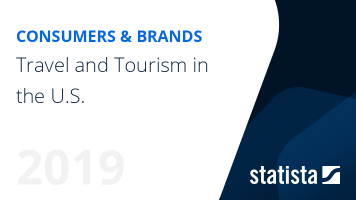A staycation refers to a vacation in which travelers stay in their home nation instead of traveling abroad. It can also describe a holiday spent at home with day trips to local attractions. Staycations have also been referred to as domestic or local travel. These types of domestic holidays became especially relevant in the United States during the
caused a huge decline in international travel. Staycations can include all types of vacations from beach holidays to city trips, and when it came to
, the majority of Americans preferred to listen to the opinions of friends or family, with over 65 percent stating this preference when surveyed in 2020.
The impact of COVID-19 on staycations in the U.S.
Domestic travel was already popular in the U.S. before the pandemic, having seen year-over-year growth in the
number of U.S. domestic leisure trips taken over the past decade. While the pandemic caused many who would otherwise travel internationally on vacation to look instead to their home nation, it also caused many who would typically travel domestically not to do so. As a result, there was a decline in the
growth of U.S. domestic tourism in 2020.
Domestic travel spending in the U.S. also showed a downward trend, with spending forecast to fall by almost 300 billion U.S. dollars in 2021 when compared to pre-coronavirus figures. That being said, due to the perceived lower risk of infection or travel problems, staycations were an appealing option for many during the outbreak. By the end of summer in 2020, the
share of U.S. adults that had taken a staycation during the pandemic was over one-quarter of the public. Millennials were especially inclined to take a staycation during this time, with over one-third having taken one, while Baby Boomers took the fewest staycations.
Are U.S. staycations here to stay?
With or without the coronavirus pandemic, it would appear that staycations are an important part of the U.S. travel industry. During a 2020 survey on the
U.S. public’s familiarity with the term “staycation”, the vast majority of respondents, over 75 percent, were either very familiar or somewhat familiar with the term. One appeal of staycations is that taking advantage of tourism opportunities in one’s own country or the local area can be significantly cheaper than vacationing abroad. Cities in the middle and western U.S., such as Omaha and Houston, were named as the
cheapest cities for a U.S. staycation in 2020. Ultimately, whether staycations were taken in the Midwest or larger coastal cities, a majority of Americans have taken a staycation before. The
share of U.S. adults that had taken a staycation in 2020 reached over 60 percent, with this figure being almost equal across all generations.
This text provides general information. Statista assumes no
liability for the information given being complete or correct.
Due to varying update cycles, statistics can display more up-to-date
data than referenced in the text.



























































